What Is The Connection Between Hair Loss And Weight Loss?
Understand the scientific reasoning behind how these two separate things are interconnected.
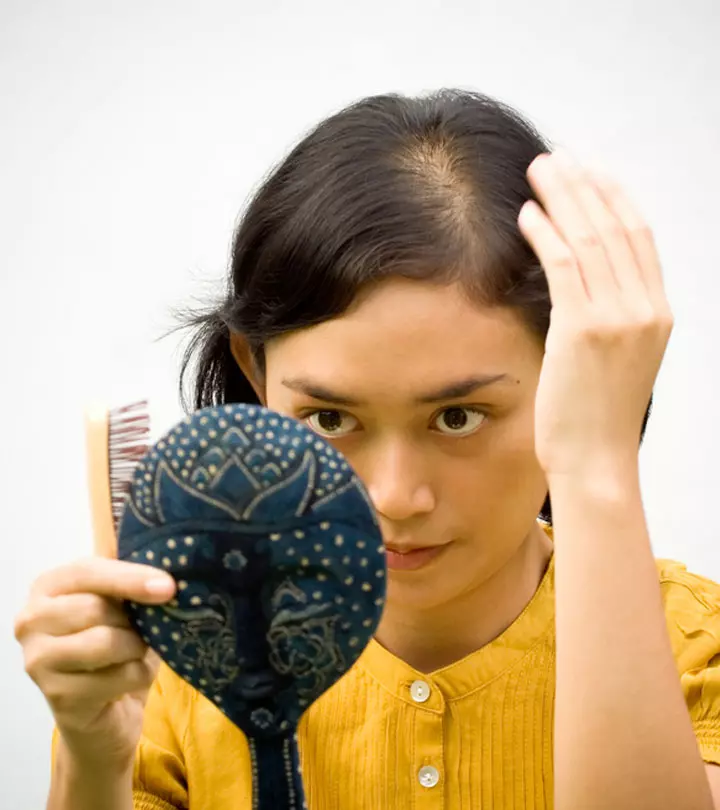
Image: Shutterstock
Many individuals trying to lose extra pounds experience hair loss and weight loss. Hair loss is mostly experienced when you lose weight rapidly. However, if you have decided to lose weight, these kinds of undesirable side effects should not block your journey. But does it mean you need to compromise with your hair quality, length, and thickness? The clear answer is no. You can balance both very effectively. Want to know how? Read on.
In This Article
Why Do You Lose Hair When You Lose Weight After A Diet?
The sudden changes in diet and calorie restriction can cause stress and nutritional deficiencies, leading to hair loss.
 Trivia
TriviaThe physiological and emotional stress and hormone imbalance due to dieting may cause Telogen Effluvium (TE), a form of temporary hair loss (1).
Telogen effluvium may also be triggered by bariatric surgery (for obesity and weight loss), iron deficiency, anemia, and the side effects of certain drugs (2). Scroll down to learn more about it in detail.
A study was conducted on 2538 patients who underwent metabolic and bariatric surgery (MBS) to study the effect of the surgery on hair loss. About 57% of the patients, more seen in younger women, reported experiencing hair loss after MBS which decreased with time.
- Stress
While striving for the ideal weight and staying fit is good, the immense pressure to lose weight may cause stress. This is further aggravated when it is accompanied by unfavorable consequences of weight loss, such as hair loss, dull skin, and fatigue.
| Types Of Stress | How To Prevent It |
|---|---|
| Physiological Stress Fluctuating Body Mass Index (BMI) causes physical stress. This signals the hair follicles to move into an inactive stage, causing sudden hair loss. | Ensure that the weight loss is gradual. Try to lose weight steadily, so your body can adapt to the changes in diet. |
| Psychological Stress Low self-esteem and depression triggered by dissatisfaction over physical aspects like body weight and hair may cause hair loss (2). | Your body weight and hair are only a part of your identity. Embrace yourself the way you are. |
| Eating Disorders Eating disorders like anorexia nervosa (lack of appetite) can cause hair loss. This psychiatric disorder causes rapid weight loss and nutrient deficiency, triggering hair loss (3). | Consult a psychiatrist, undergo therapy, and follow the prescribed medication to overcome this disorder. |
- Nutritional Deficiency
Nutritional deficiency may impact both hair structure and hair growth. Sudden weight loss or reduced protein intake may cause acute telogen effluvium (TE) (4).
| Factors Causing Nutritional Deficiency | How To Prevent It |
|---|---|
| Starvation /Malnutrition /Crash Diets Extreme diets with very low-calorie intake and possibly low protein intake will result in hair loss . Crash diets cause mild to severe depletion of essential nutrients needed for sustaining proper body function. Loss of nutrients like protein, iron, biotin, zinc, essential fatty acids, and vitamin B12 triggers hair loss (4). A recent study reports that nutritional deficiency of amino acids, such as histidine, leucine, valine, alanine, and cysteine was found in participants with different types of hair loss (5). | Your body needs adequate nutrition for proper hair growth. Work with a nutritionist or dietitian to lose weight in a healthy way. |
| Protein Deficiency Protein helps maintain the hair follicle structure. Inadequate protein intake may weaken the hair follicles, causing hair loss. | Consume a protein-rich diet to maintain hair health. high protein foods can help grow your hair. You need 0.8 g protein per kg body weight per day, depending on your gender, age, and health status (6). |
| Iron Deficiency And Anemia Iron deficiency causes anemia and is linked to hair loss. Reduced iron levels in the body are measured virtually by low serum ferritin levels. The ferritin level should be above 50 μg/l or 70μg/l on a case to case basis (4). | Consume foods rich in iron, and hemoglobin rich foods like white beans, nuts, lentils, spinach, kidney beans, peas, lean meat, seafood, and poultry (7). |
| Acquired Zinc Deficiency Zinc is an important factor in the growth and development of healthy hair (4). | Consume zinc-rich foods like chickpea, pumpkin seeds, yogurt, cashews, oatmeal, oysters, chicken, beef, and crab (8). |
| Micronutrient Deficiency Micronutrient And Amino Acid Deficiency | Follow a well-balanced diet rich in whole grains, vegetables, and fruits. Consume whole grains, eggs, healthy fats from nuts and avocados, spinach, citrus fruits, and carrots. |
- Drugs And Hormones
Weight loss medications and hormone supplements may also trigger hair loss.
- Anti-thyroid agents
- Hormones, such as androgens (testosterone)
- Phentermine (Although anecdotal evidence suggests that it can cause hair loss, this side effect isn’t often listed. More research is warranted to validate this claim.)
If your hair loss is caused due to underlying conditions and medications, talk to your doctor. However, if it is triggered by weight loss, it is a temporary phase.
 Pro Tip
Pro TipKey Takeaways
- The sudden change in the diet and calorie restrictions may lead to nutritional deficiencies. This results in hair loss.
- You may experience sudden hair fall if you take medications and hormone supplements during your weight loss journey.
- However, your hair will grow back within a few months once you resume a healthy and balanced diet.
How Long Does Hair Fall Out After Weight Loss?
You may experience hair loss for 3-6 months after weight loss. This is a temporary phase, and once you resume a healthy and balanced diet, your hair will start to grow.
If you are experiencing hair loss during weight loss, here is how you can prevent it.
Tips To Prevent Hair Loss When Losing Weight
- Avoid crash diets.
- Avoid diets that demand severe calorie
- Get adequate sleep for 7 to 8 hours.
- Consult a doctor and take high-quality multivitamins (100% RDV).
- Get regular scalp massages to improve circulation.
If you are concerned about whether the hair will grow back or not, scroll down for the answer.
Will The Hair Grow Back After Weight Loss?
Yes, the hair you lost during your weight loss journey will grow back once the body adjusts to the diet and the underlying stressors are gone (2). Hair loss mainly happens when your body does not get an adequate supply of nutrients. Once you start following a balanced, healthy diet, your hair should grow back within six months.
While losing 50-100 strands every day is normal, consult a doctor immediately in case of excess hair fall. Here is how excess hair loss is diagnosed.
Excess Hair Fall: Diagnosis And Treatment
You may try the hair pull test (2). Grasp around 50 hair strands between your thumb and forefinger and pull gently along. It is normal if a few strands (less than 10%) come off. However, if most of the hair strands come off, consult a doctor immediately.
 Trivia
TriviaThe doctor may perform tests for further diagnosis. They include:
- Hormonal test
- Tests to check serum ferritin levels
- Thyroid test
- Tests to check vitamin D levels
The doctor may also suggest treatment options like:
- Minoxidil: Studies show that 2% topical minoxidil can stimulate hair regrowth (8).
- Spironolactone: Spironolactone therapy also encourages hair regrowth (9). It slows down androgens (testosterone) to promote hair growth. Keep in mind that it should be taken only with your doctor’s consent.
The doctor may also use drugs and therapies like PRP(platelet rich plasma), laser treatment or hair transplantation to treat hair loss. However, the treatment may vary from case to case.
Sudden weight loss can often result in temporary hair loss owing to diet changes, nutritional deficiencies, and physiological and psychological stress. The nutrient deficiencies that cause hair loss include iron, vitamin B12, zinc, biotin, protein, amino acids, and essential fatty acids. Weight loss medications can also cause this hair issue. Avoid crash diets and those that require severe calorie restriction, take high-quality multivitamins, and get enough sleep to prevent hair loss caused by weight loss. But keep in mind that long-term hair loss needs medical attention. Consult a doctor to diagnose any underlying medical conditions.
Frequently Asked Questions
Do thyroid issues cause hair loss and weight gain?
There are various reasons for weight gain and hair loss, including thyroid. Weight gain can result from hypothyroidism. Due to how slowly hypothyroidism develops, many people don’t experience any symptoms for months or even years. Additionally, it can lead to hair thinning on the scalp and body and dry, brittle hair (10). Thyroid disorders, if severe and left untreated, can result in hair loss.
The video below discusses the association between weight loss and hair loss. Know other key factors affecting your hair health and get insights for maintaining strong and healthy hair. Check it out!
References
Articles on StyleCraze are backed by verified information from peer-reviewed and academic research papers, reputed organizations, research institutions, and medical associations to ensure accuracy and relevance. Read our editorial policy to learn more.
- Telogen effluvium: a review
https://www.ncbi.nlm.nih.gov/pmc/articles/PMC4606321/ - Diagnosing and treating hair loss
https://www.aafp.org/pubs/afp/issues/2009/0815/p356.html - Psychological aspects of eating disorders
https://www.sciencedirect.com/science/article/abs/pii/S1521691804000848 - Diet and hair loss: effects of nutrient deficiency and supplement use
https://www.ncbi.nlm.nih.gov/pmc/articles/PMC5315033/ - Prevalence of Nutritional Deficiencies in Hair Loss among Indian Participants: Results of a Cross-sectional Study
https://www.ncbi.nlm.nih.gov/pmc/articles/PMC5596642/ - Dietary Protein Intake and Human Health.
https://pubs.rsc.org/en/content/articlelanding/2016/FO/C5FO01530H#!divAbstract - Office of Dietary Supplements – Iron
https://ods.od.nih.gov/factsheets/Iron-Consumer/ - Office of Dietary Supplements – Zinc.
https://ods.od.nih.gov/factsheets/Zinc-HealthProfessional/ - Hypothyroidism (Underactive Thyroid)
https://www.niddk.nih.gov/health-information/endocrine-diseases/hypothyroidism
Read full bio of Dr. Shruti Chavan
Read full bio of Annie Jangam
Read full bio of Anjali Sayee
Read full bio of Swathi E






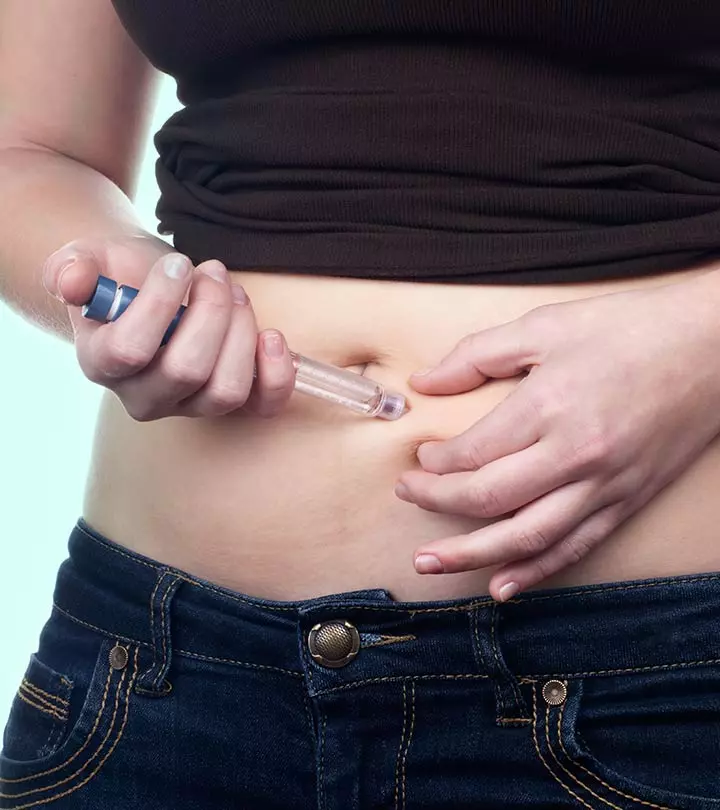
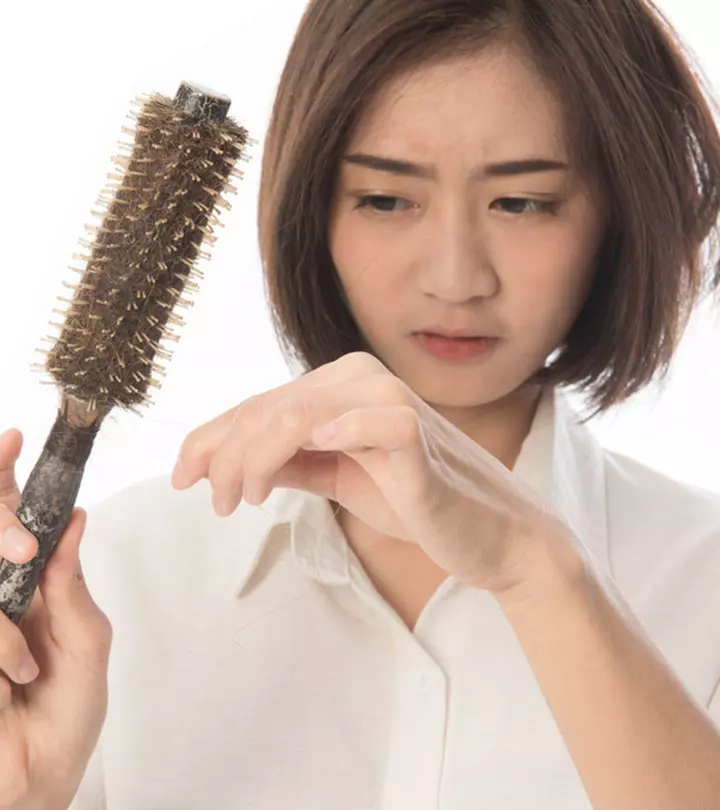
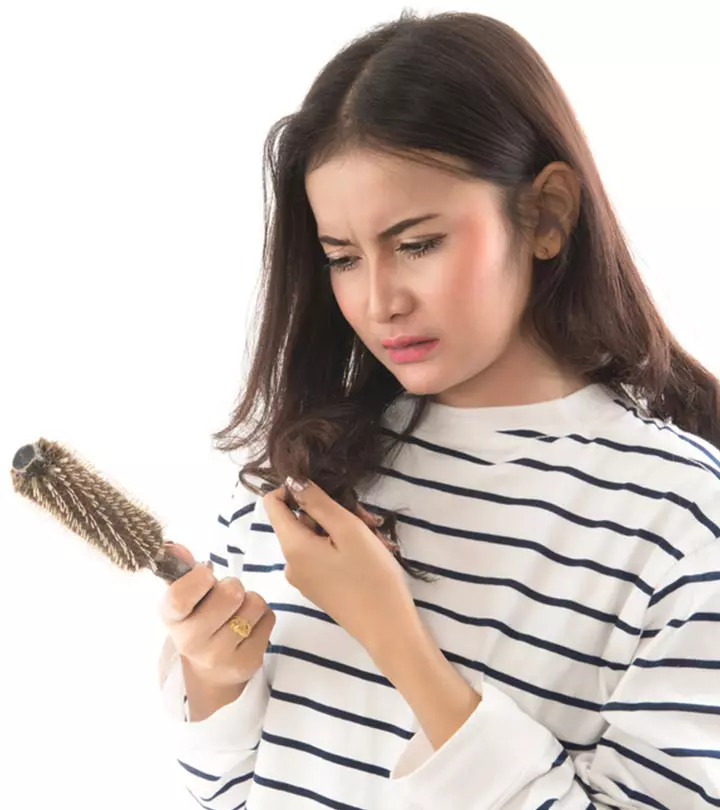

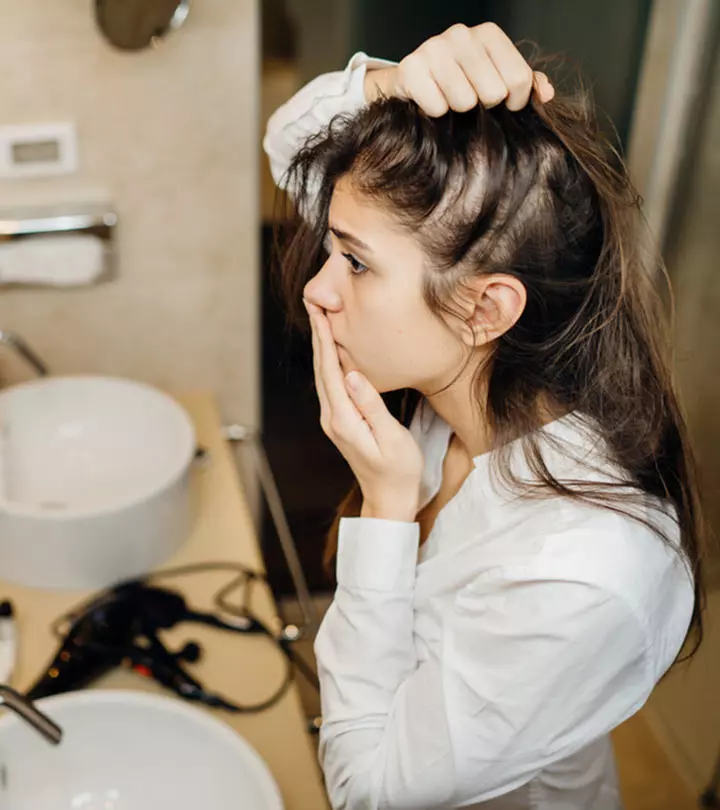
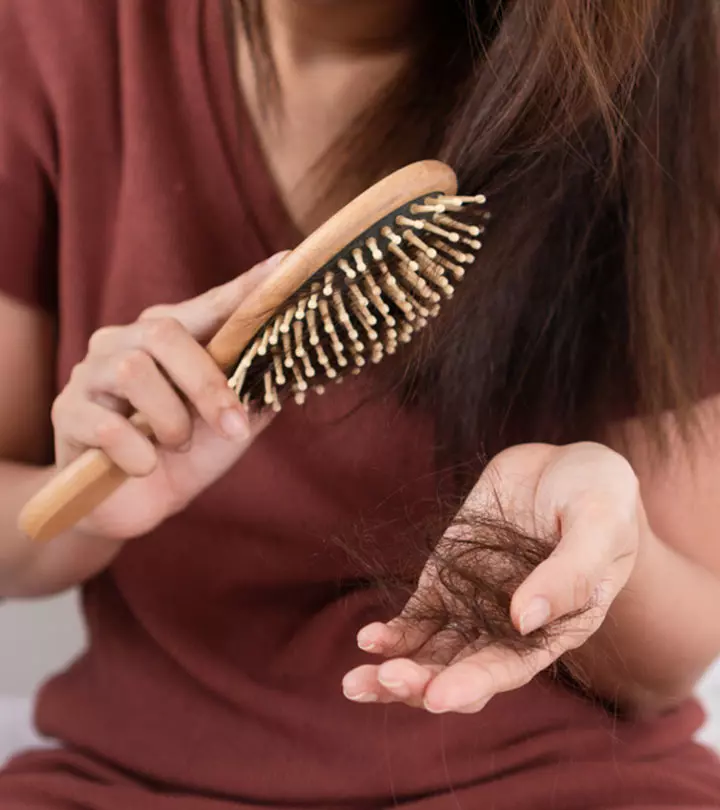

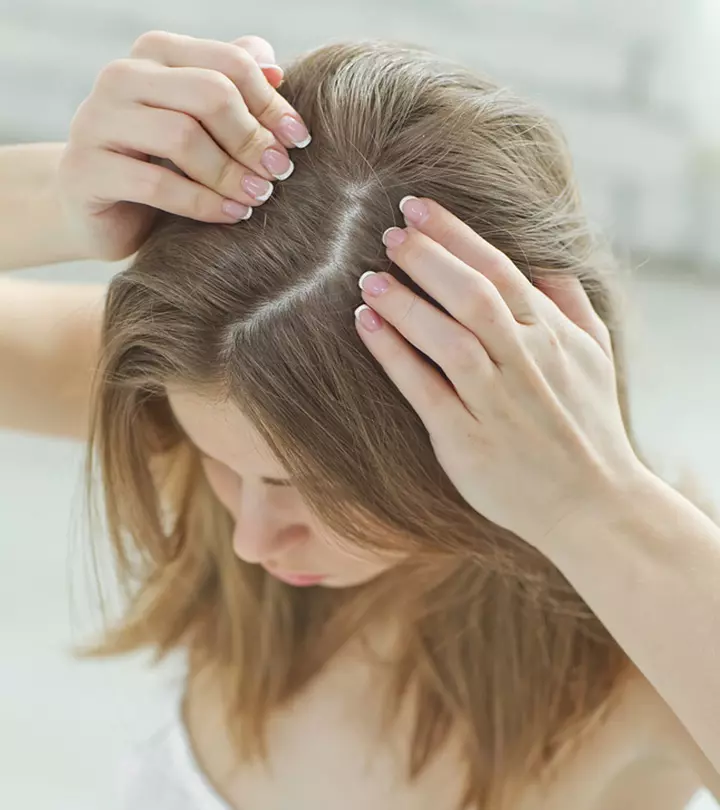
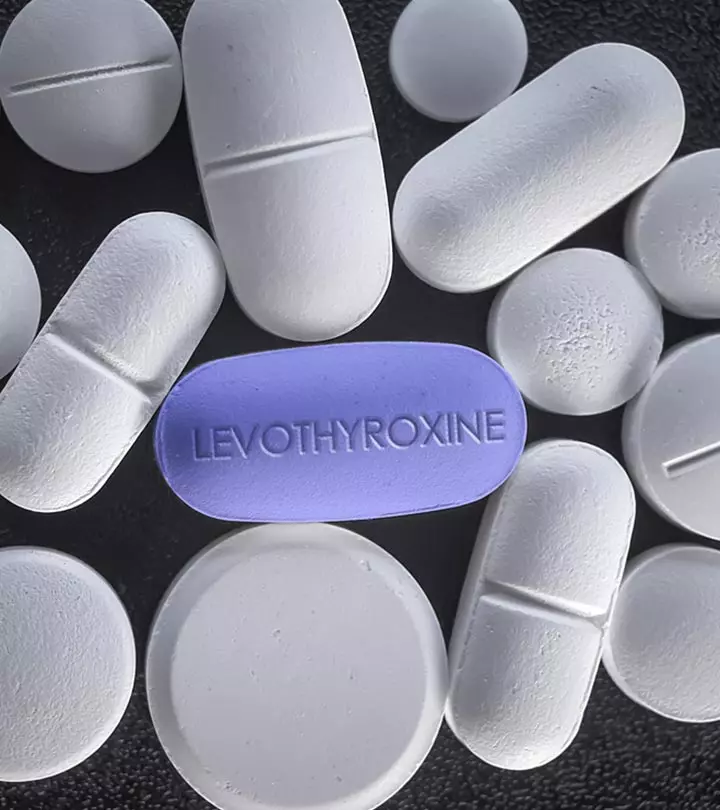


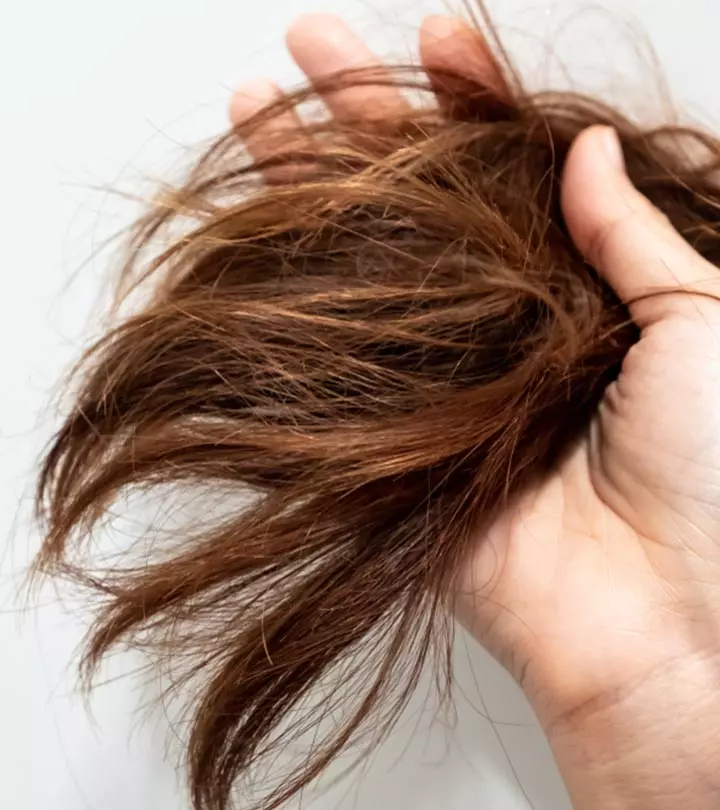
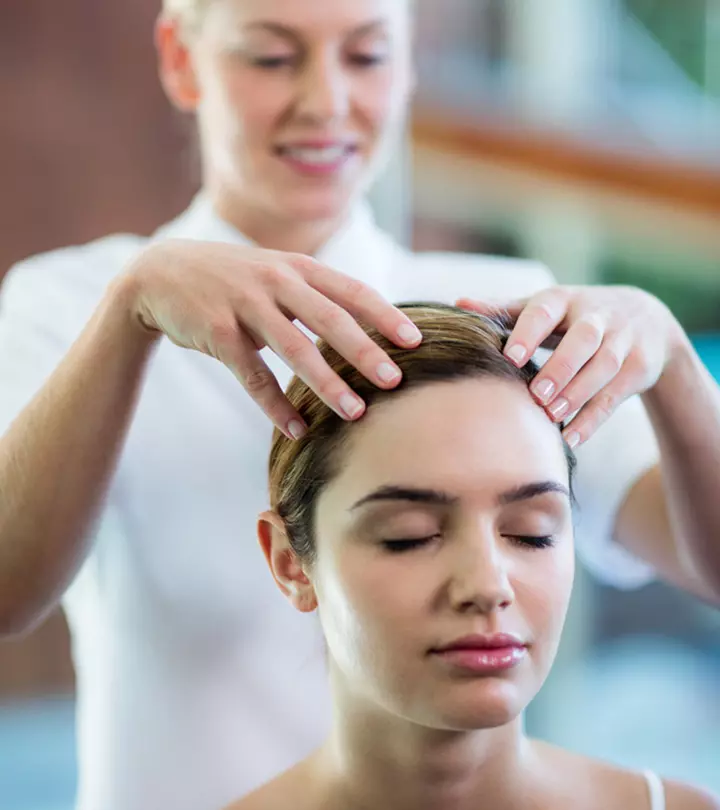








Community Experiences
Join the conversation and become a part of our empowering community! Share your stories, experiences, and insights to connect with other beauty, lifestyle, and health enthusiasts.